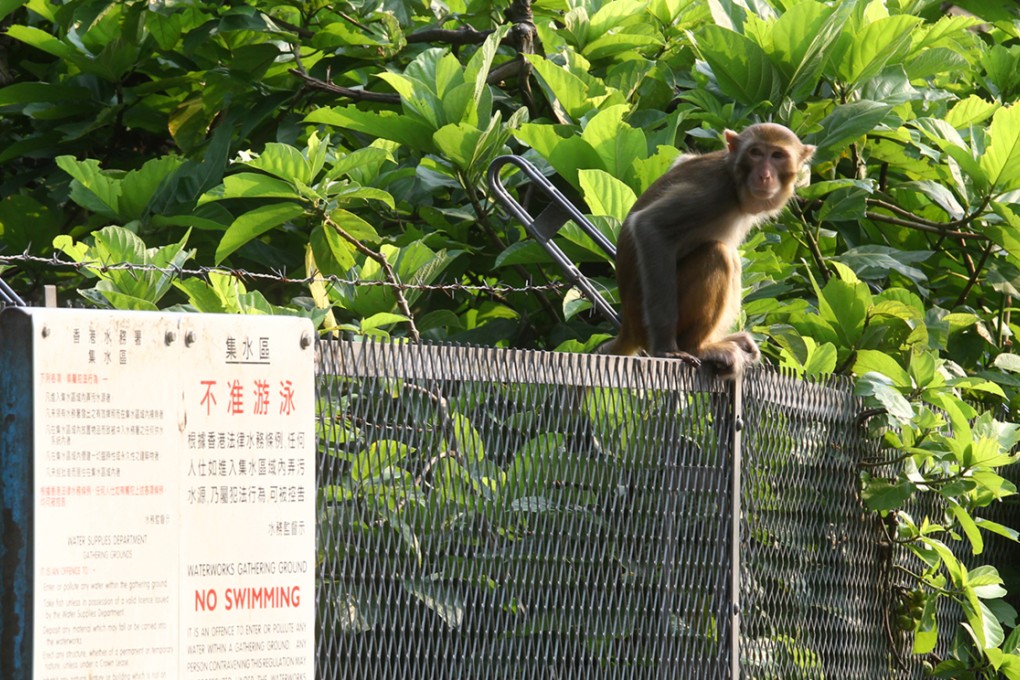My Take | Marauding macaques: a monkey business we could do without
This is the last thing we need in Hong Kong right now. Soaring political temperature, skyrocketing rents, pollution - and now a rising population of monkeys has been added to the list.

This is the last thing we need in Hong Kong right now. Soaring political temperature, skyrocketing rents, pollution - and now a rising nuisance of monkeys has been added to the list.
From their country park habitat around Kam Shan, these macaques are now venturing into urban areas in search food, posing a threat to the people living there.
Experts say the macaques are losing their natural instinct of foraging for food in the wild as people feed them. These monkeys - and I don't mean the ones feeding them - now think anyone they see with food is fair game.
As a part of the plans to control the menace, authorities planted 200,000 fruit-bearing trees. Surely that should have worked, given that the count of wild monkeys is somewhere around 2,000. But, as we know, government plans often do not work as expected.
The trees they planted provided fruits only for six months, according to Professor David Dudgeon, head of the University of Hong Kong's department of ecology and biodiversity. In addition, some trees may have been planted in areas where the monkeys are not usually found.
The combined effect of all this is that the macaques now search for food in other areas. One of them was captured outside the Lam Tin public library. The report did not specify, but one suspects - given the foresight our officials display - the culprit may have been looking for books to prepare for the next civil service exams.

